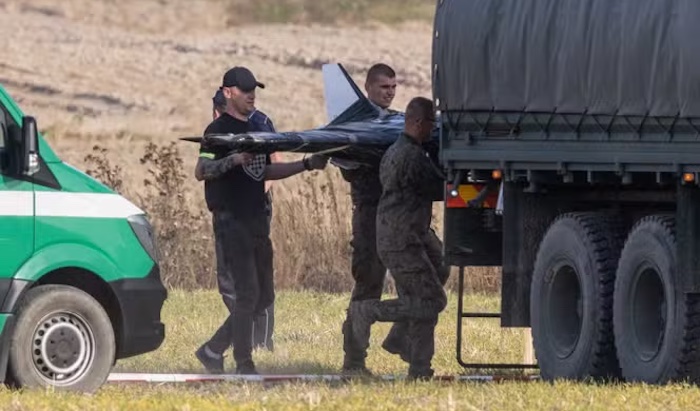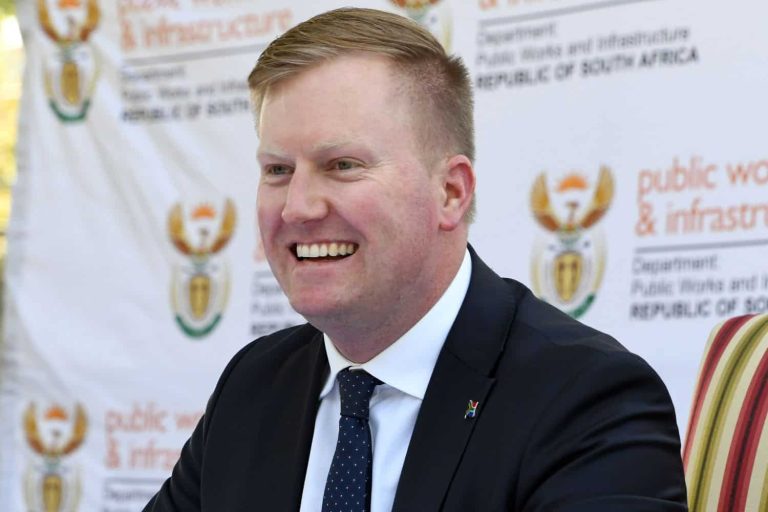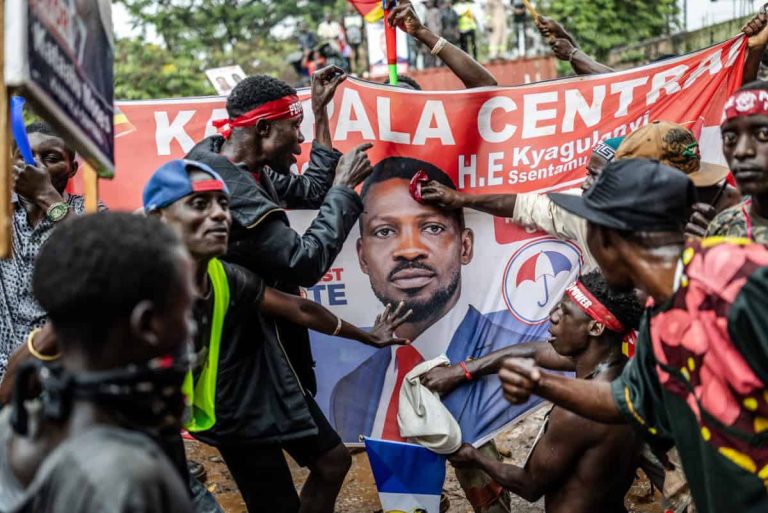
NATO members are ramping up military support for Poland after what Warsaw described as an unprecedented violation of its airspace by Russian drones, a development that has heightened fears of escalation on the alliance’s eastern flank.
Poland said multiple Russian drones crossed into its territory early Wednesday, with three shot down by Polish forces and others crashing in rural areas of the country’s east. Although Russian missiles and drones have strayed into NATO countries before, Warsaw insisted this was the most serious incident since Russia’s full-scale invasion of Ukraine in February 2022.
In response, the Netherlands and the Czech Republic announced deployments of troops, artillery, helicopters, and advanced air defence systems to Poland. Germany pledged to intensify its presence along NATO’s eastern border and expand its air policing operations, while France committed three Rafale fighter jets to patrol Polish skies. President Emmanuel Macron described the incursion as “Russia’s growing intimidation” and vowed, “We will not yield.”
Polish Defence Minister Wladyslaw Kosiniak-Kamysz praised the immediate support from allies, saying, “Today we have concrete declarations, not just words of solidarity,” a pointed reference to Poland’s history of being left vulnerable in past crises.
Addressing parliament, Kosiniak-Kamysz said the Dutch would deploy 300 soldiers alongside artillery and missile batteries, while the Czechs would send helicopters and 100 troops. He added that both Britain and France were prepared to contribute further air power to reinforce NATO’s eastern defences.
The incident has rattled NATO capitals. NATO’s Supreme Allied Commander Europe, General Alexus Grynkewich, confirmed that investigations were still underway to determine how many drones entered Polish airspace and whether the breach was intentional. However, Polish President Karol Nawrocki dismissed suggestions of an accident, calling it a deliberate provocation by Moscow to “test our capabilities and our resolve.”
Ukrainian President Volodymyr Zelensky also weighed in, urging the creation of a joint NATO-European air defence shield. “Russia’s insolence will only grow if Europe remains exposed,” he said, offering to share Ukraine’s battlefield expertise in countering nightly drone and missile attacks.
The drone incident comes on the eve of large-scale joint Russian-Belarusian military exercises, dubbed Zapad 2025, scheduled to begin Friday.
Poland has announced it will close its border with Belarus for “national security reasons,” a move Russia swiftly condemned. Russian foreign ministry spokeswoman Maria Zakharova warned the closure “will cause serious damage to businesses and freedom of movement,” urging Warsaw to reverse the decision.
While the Kremlin declined to comment further on the incident, many European leaders believe the drones were intentionally launched to destabilize NATO unity. France and Germany echoed Poland’s warnings, saying Moscow was probing for weaknesses within the alliance.
Meanwhile, US President Donald Trump who has sought to mediate a peace settlement in Ukraine struck a cautious note, suggesting the incursion may have been a “mistake.”
Speaking to reporters, he said, “I’m not happy about anything to do with the situation, but hopefully that’s going to come to an end.” On social media, however, he posted a more pointed message, “What’s with Russia violating Poland’s airspace with drones? Here we go!”
Polish President Nawrocki later confirmed he had spoken directly with Trump as part of a series of consultations with NATO allies. He said the talks reaffirmed Poland’s unity with the United States and other NATO members at a time of heightened danger.
As tensions mount, Warsaw has also introduced restrictions on drone flights and small civilian aircraft along its eastern borders with Belarus and Ukraine. Latvia, another NATO frontline state, has announced the closure of its eastern airspace for one week.
The Zapad drills themselves are expected to involve up to 30,000 Russian and Belarusian troops, far fewer than the 200,000 who participated in the 2021 exercises, according to Lithuanian military intelligence. Even so, NATO leaders remain concerned that the manoeuvres could be used as cover for further provocations.
For Poland and its NATO partners, the stakes are high. The breach of Polish airspace has underscored the vulnerability of NATO’s eastern frontier and the risk that Russia’s war in Ukraine could spill over into a wider conflict.
Erizia Rubyjeana



